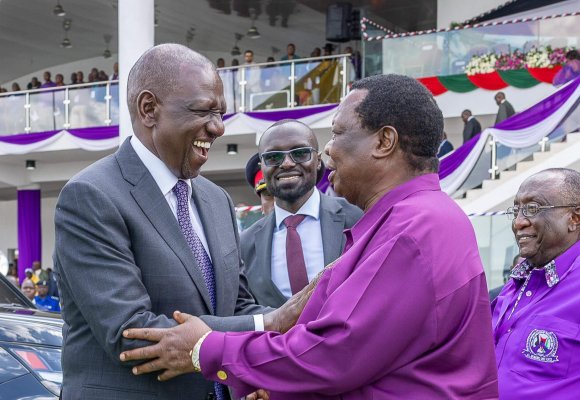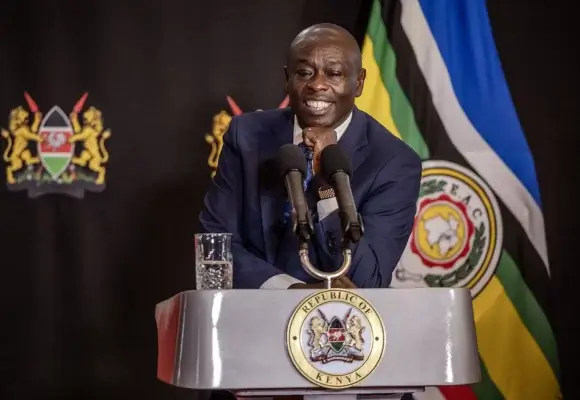|
LISTEN TO THIS THE AFRICANA VOICE ARTICLE NOW
Getting your Trinity Audio player ready...
|
One year after President William Ruto took office “hustlers” are not happy. In the Kenyan context, the term “hustler” is used to describe people who come from poor or disadvantaged backgrounds and have had to struggle to succeed in life. They are often self-made individuals who have worked hard to overcome challenges and achieve their goals.
The term was popularized by President Ruto, who used it to describe himself and his supporters during his successful campaign for president in 2022. Ruto claimed to be a “hustler” who had come from a humble background and had to work hard to achieve his success. He contrasted himself with his opponents, who he said were from wealthy and well-connected families.
In a recent interview with Kenyans on the streets of Nairobi, The Africana Voice found that many are disappointed with Ruto’s performance thus far.
“It’s getting harder and harder to make a profit,” says Jared Obwocha, a motorbike taxi operator. “President Ruto promised to lower the cost of living, but what we’re seeing is the complete opposite.”
With the increased fuel costs, Obwocha only makes a meager living, making it hard for him to foot his family bills and survive in the city.
Dennis Onyango, a city resident, echoes Obwocha’s sentiments. He says it’s hard to afford even the most basic needs like maize meal, the staple food of the country. He blames President Ruto for causing the cost of living to shoot through the roof.
“Former President Uhuru Kenyatta left the price of petrol at Ksh 160, but now it’s over Ksh 200,” he says. “The moment you increase the price of fuel, you affect everything else.”
Winnie Nyambura, a street seller of sweets and drinks, laments the surging cost of goods and services, while her income has gone down. “Bills are going up, but my income is getting less,” she says. “I have rent to pay, children in school, and a whole host of bills to pay to sustain my family, but the money is not there.”
Juliana Kivinya from Machakos blames the government for the current cost of living crisis in the country. She says the Ruto-led administration made a big mistake by removing subsidies on food items and doubling VAT on the very items.
“We can’t afford meals and without food, you can’t work,” Kivinya says. “The government thinks things are well, but they are not. There are no jobs. School fees have gone up. It’s hard to give our children education now.”
Besides going without food, Kivinya says most ordinary people in the city’s satellites don’t even have access to clean water, and the one that is sold by water bowsers is way beyond the reach of most common mwananchi.
The Matatu Owners Association of Kenya early this month announced increasing fares by 20 percent. However, Sam Bosire, a leader of the Kenya Bus Service company, says their company has not implemented the directive, owing to scarcity of money among customers.
“We have not increased fares because the people don’t have that money to add,” he says. “They are already struggling to survive. Even if we increase the fare, I don’t think most people will pay more because they are broke and struggling like us.”
Obwocha, the boda boda operator, says he, too, has not increased his fare owing to the same reasons as Sam. However, he adds that most people in the city are now not using the boda boda, probably to save an extra coin, as they innovate ways of surviving the economic shocks.
He says the government should find ways to cushion the ordinary person from the economic crisis. “We urge our government to reduce the cost of petrol and electricity, that way, the cost of living will be at least bearable,” he says. “After that, it should look for investors to come and create jobs because right now, there are no jobs at all.”
Nyambura urges the government to make it easy for the ordinary low-income persons like her to afford life and educate their children. “Our investments are the children that we want to educate,” she says. “But now it is so hard to feed them, leave alone afford their school fee. We only leave it to God to intervene because right now, most of us are hopeless.”
The high cost of living in Kenya is a heavy burden on the common mwananchi. Many Kenyans are struggling to make ends meet, and some are even going without food and other essential necessities.
The government has promised to take steps to lower the cost of living, but many Kenyans are skeptical. They have seen too many promises made and broken in the past.
President William Ruto has been promising to lower the cost of living since he was elected, but his promises have remained just that – promises.
Ruto and his Kenya Kwanza team have repeatedly promised to reduce the cost of fuel and electricity, and to increase agricultural productivity. However, there has been little progress on any of these fronts.
In recent weeks, Ruto has been saying that the government is committed to lowering the cost of living and that it is working on a number of measures to achieve this goal. However, most Kenyans are skeptical of his promises, arguing that the government has not done enough to help them in the past.
While on a tour in Western Kenya last week, Prime Cabinet Secretary, Musalia Mudavadi said that Kenyans need to be patient as the government works to address the problem. He said that there is no quick fix to the high cost of living, but that the government is committed to finding long-term solutions.
In the same event, the leader of majority in the national assembly, Kimani Ichungwah said the opposition is being opportunist by politicizing the high cost of living, which he said is not unique to Kenya.
Azimio has been calling for the lowering of the unga prices and the reduction of the added taxes on basic commodities and fuel. It has several times accused the government of shortchanging the hustlers who elected it. In June and July, Azimio la Umoja coalition party, led by former prime minister Raila Odinga rallied Kenyans to participate in weekly demonstrations to protest the high cost of living. The opposition later suspended the demonstrations to pave the way for Bipartisan talks with the government to address the issues affecting the nation, especially the thorny cost of living.
However, many Kenyans are running out of patience. They are calling on the government to take more concrete action to lower the cost of living, such as providing subsidies on essential goods and services.
In the meantime, the common mwananchi continues to struggle. They are forced to make difficult choices, such as whether to pay for food or rent, or whether to send their children to school.















































LEAVE A COMMENT
You must be logged in to post a comment.